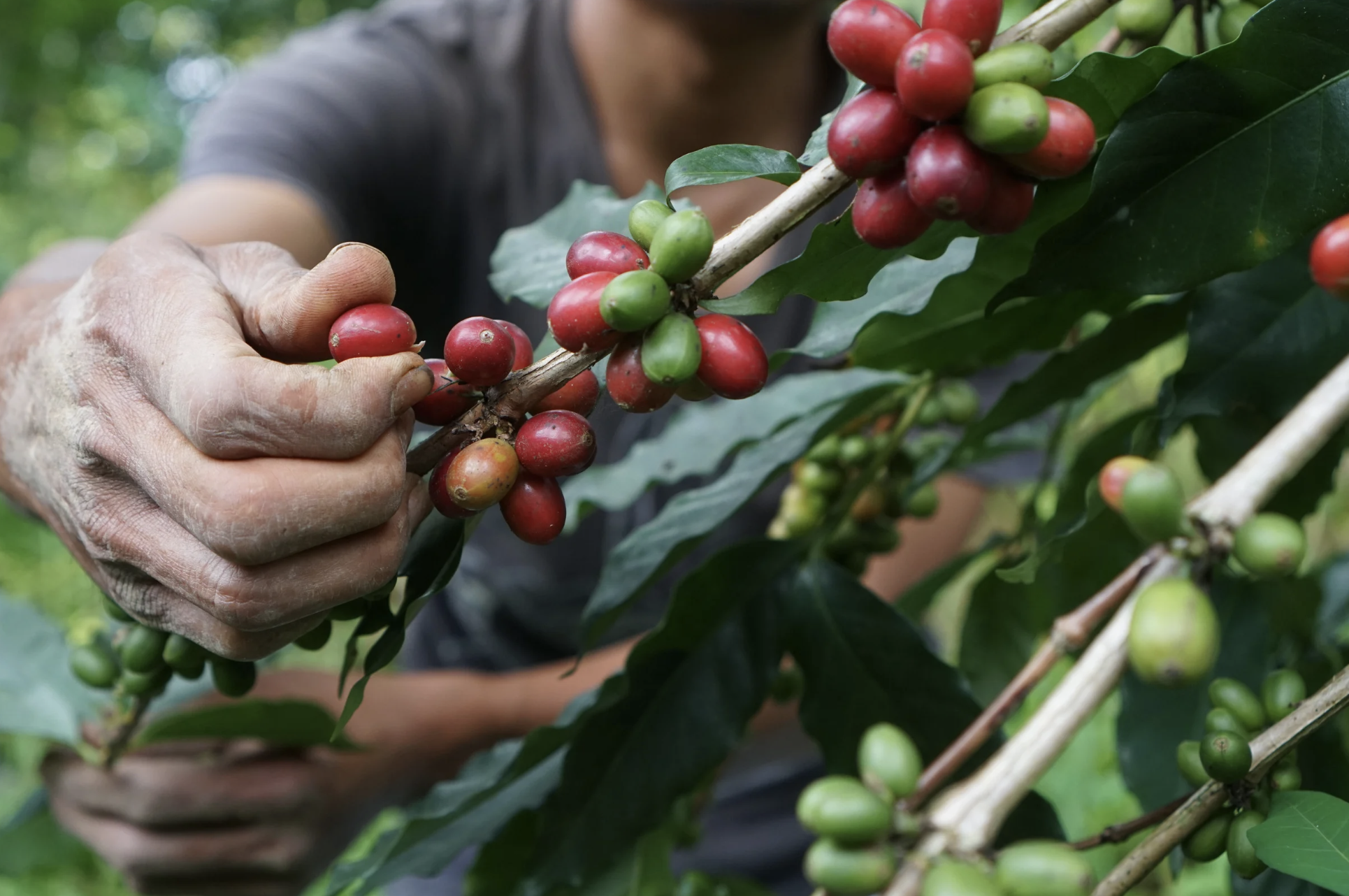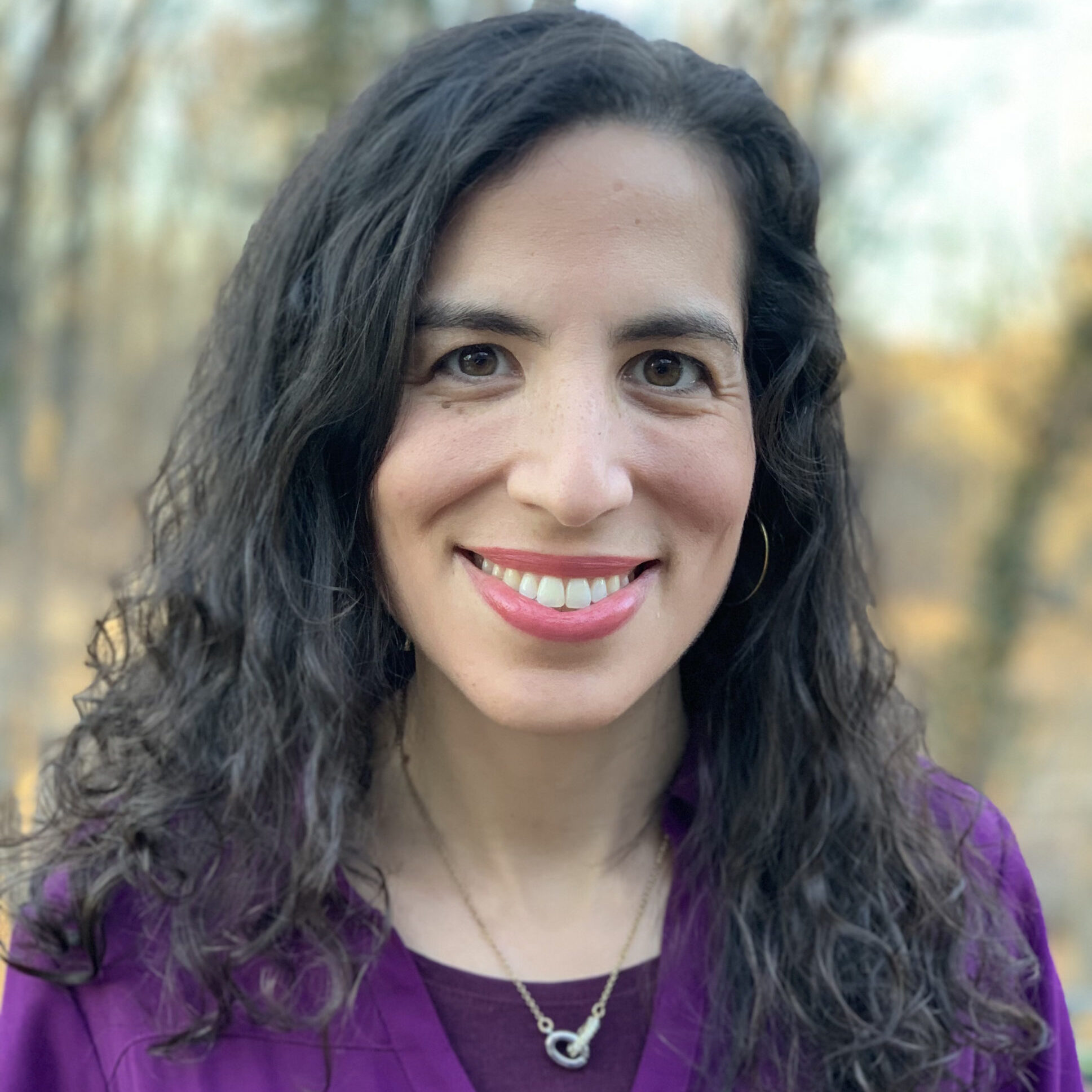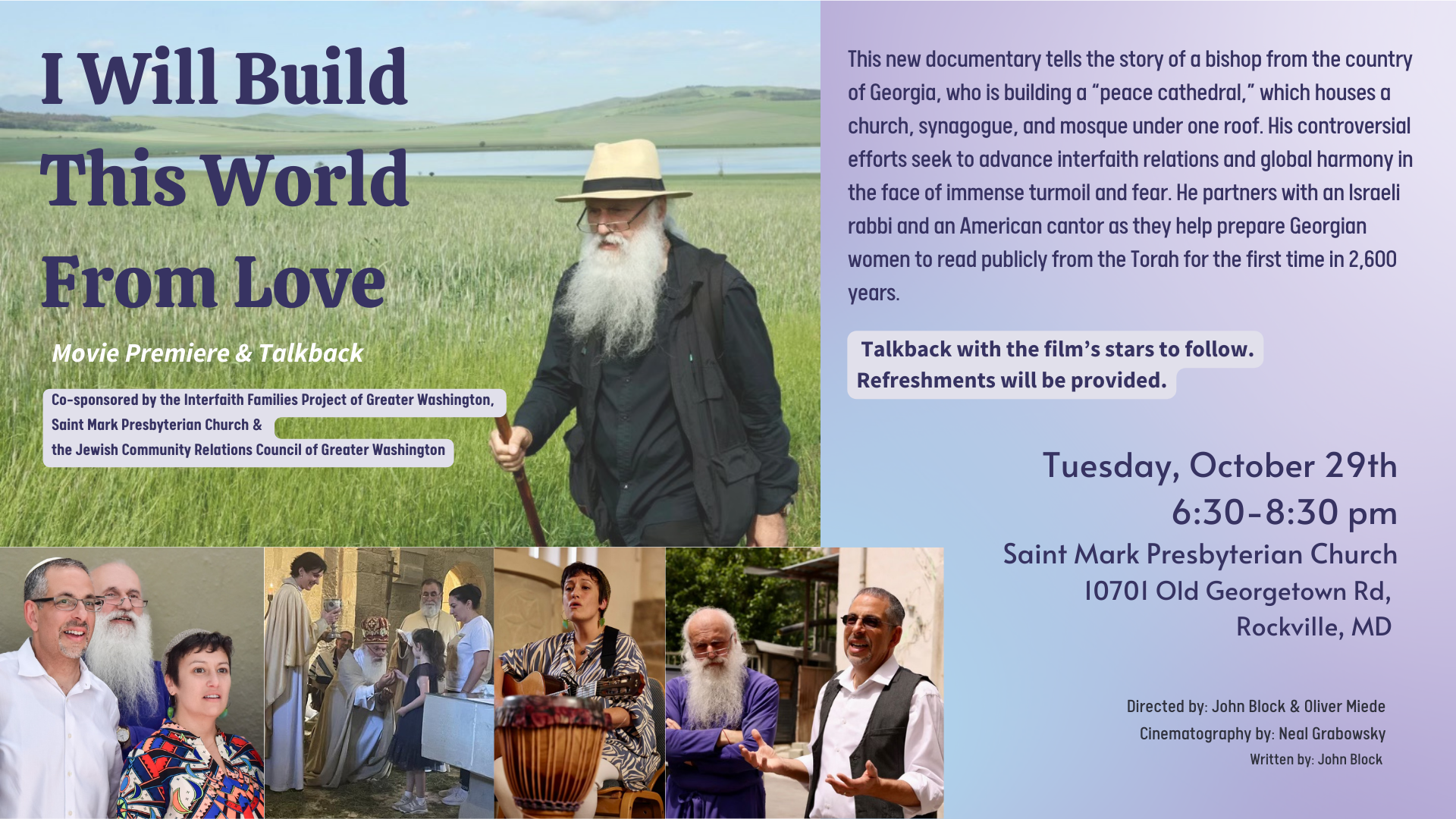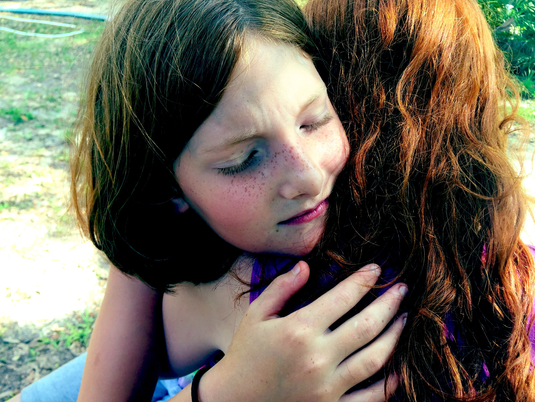Adapted from Rev. Samantha Gonzalez-Block’s sermon, delivered on Sunday, June 7th at St. Mark Presbyterian Church (North Bethesda, Maryland)
What does the Lord require of you but to do justice and to love kindness and to walk humbly with your God? – Micah 6:8
When I think about summertime, I can’t help but think about youth mission trips. For many years, I took young adults on all sorts of excursions during the summer months, but one particular trip to Guatemala has always stayed with me.
There, we met a man named Timoteo. Every morning just before sunrise, Timoteo would begin his long ascent up a mountain by foot to his prized, closet-sized coffee farm that overlooked the city of San Miguel. Timoteo had been making this journey up the mountain every day since he was nine, helping his father care for that same cherished piece of earth.
Now, nearly fifty years later, he was enthusiastically leading my youth group and me up to this farm. The climb was no joke – I breathed heavily and tried my best to keep up. When we reached the top, Timoteo didn’t stop to rest. He stuck a shovel deep into the ground and asked who was ready to dig a hole for a new coffee plant. One of the youth named Ben eagerly volunteered.
We watched closely as Ben used all his power to push that shovel through the dirt. Next, another youth, Hannah stepped in and gave it her all. After about fifteen minutes and a whole lot of teamwork, we finally made a hole deep enough to place a new coffee plant in the ground.
“That was hard work!”, shouted Ben. “How many holes do you dig a day, Timoteo?”
“Oh, about two hundred.”
Two hundred holes a day!?! For us, Timoteo’s work felt impossibly strenuous, but for him, this was a simple task. He was accustomed to hard work because he had spent his life building the skills, the stamina, and the strength to do it well.
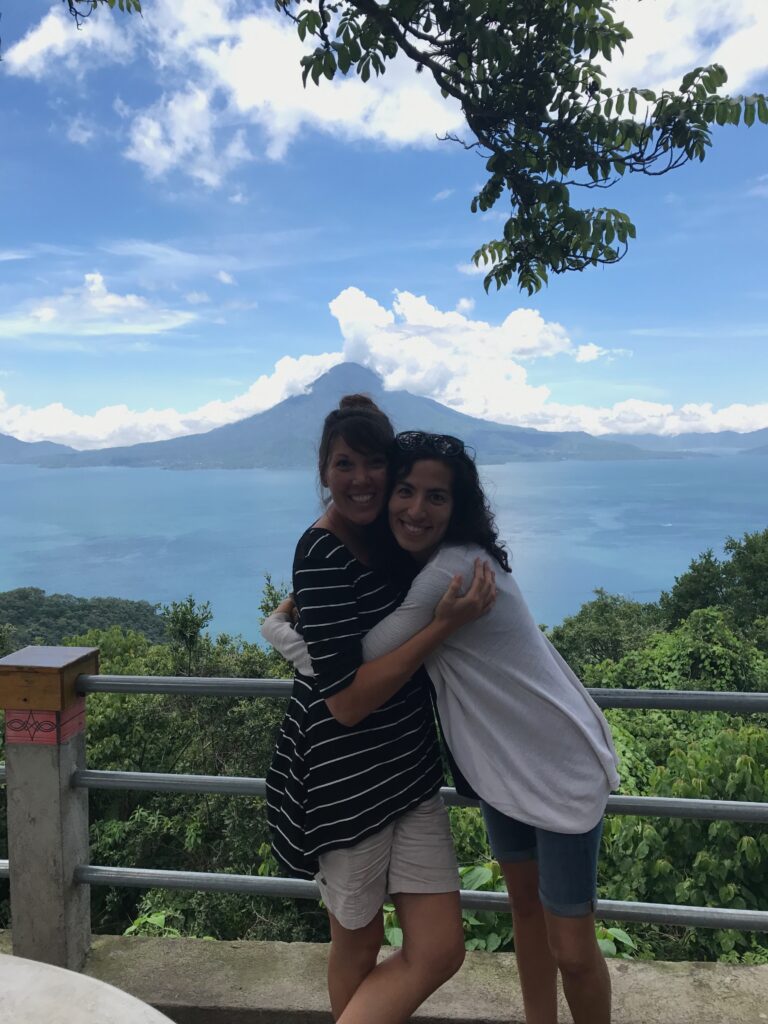
Living as people of faith can be hard work, and doing justice for the benefit of God’s good earth is no simple task.
What does the Lord require of you? This is a question so familiar to us that we might skim right through it. We might say: “I know this one!” “It’s one of my favorite passages!” “The answer is in a frame on my bathroom wall!” But when is the last we really stopped to dig deeper into what this passage really means for our lives of faith? Perhaps what God requires of us is not so simple – and takes some skill building.
Surely tending to those in need and speaking out for the marginalized are God’s work, but here Micah says that we cannot even attempt to “do justice” until we place it alongside “loving kindness” and “walking humbly with our God.”
I don’t know about you, but kindness and humility are not necessarily the first words that come to mind when I think about justice work. This is the D.C. area, when we think of justice, we might think of late-night marches, holding signs, chanting with a crowd.
What does loving kindness and walking humbly have to do with bringing about justice? Why would God require that we embrace all these things – all at once?
Maybe it would help if we journey back to Micah’s time…
Imagine a serious courtroom drama (the people vs. God). Our biblical ancestors are being charged with slacking in their faith – no longer praising God with their full hearts, souls, and minds, no longer turning to their Creator for guidance and comfort as they navigate a difficult and divided world.
God is furious and declares that they have broken their covenant promise. The people try to quickly settle this dispute. They present God with beautiful burnt offerings and even living sacrifices, but the Lord is not easily swayed (in fact, this causes even more friction).
Finally, God silences the room and reminds them that what is required is not grand gestures, but three simple acts done with mindfulness, boldness, and true devotion: do justice, love kindness, and walk humbly with your God.
God declares that these three words need one another to flourish – just as God’s people need God, and God needs God’s people.
So all these millennia later, we have to ask: What does it mean to love kindness?
Kindness can feel in short supply these days. Our world seems to be at war with itself. Our country is facing a divisive election season. Every day people are hurting in countless ways. Kindness is not always valued or easy to find. And yet, Micah says kindness is a requirement from God.
He’s not the only one who sees its holy value. Theologian John Wesely is often given credit for a piece of writing called “The Kindness Prayer.” At the Interfaith Families Project, we say the Kindness prayer in unison each week when we gather. It goes like this:
“Do all the good you can, By all the means you can,
In all the ways you can, In all the places you can,
To all the people you can, As long as ever you can.”
This prayer helps us get to the heart of what God is asking of us. What if kindness is more than “being nice or being polite”? What if being kind is a powerful, radical, transformative approach to living? What if it means choosing to work hand-in-hand to build God’s kingdom – one simple, bold act of compassion at a time?
When we are doing the hard and vital work of justice – we must never forget who we are and whose we are. “Loving kindness” means meeting God and one another in such a way that will deepen our connection and expand our imagination – even take us to new, joyful, challenging, life-giving places – one breath, or dance step, one shovel’s worth of dirt at a time.
What does it mean to walk humbly?
When was the last time you were rewarded for your humility? In our society, we often treat humility as something synonymous with weakness – not a virtue that will get you very far in this competitive world. Yet once again this morning’s passage flips our perspective upside down: telling us that walking humbly is also a divine requirement that paves the way for justice, change-making work.
The truth is we are not just walking humbly in this life – we are walking humbly with our God.
In Eugene Peterson’s “The Message,” he translates this to mean: “Don’t take yourself too seriously, take God seriously.”
I love that. Essentially, to walk humbly with God means to put your guard down, so that God can lead the way. Walk humbly by setting aside your doubts, fears, pride, and prejudices, and opening yourself up to unexpected courage and new connection.
Rev. Barbara Brown Taylor once offered a sermon where she shared her belief that lay leaders are God’s best hope for healing the world. She expressed that as members of the Lord’s family, we must be attentive to God’s voice – calling us to holy, hard work.
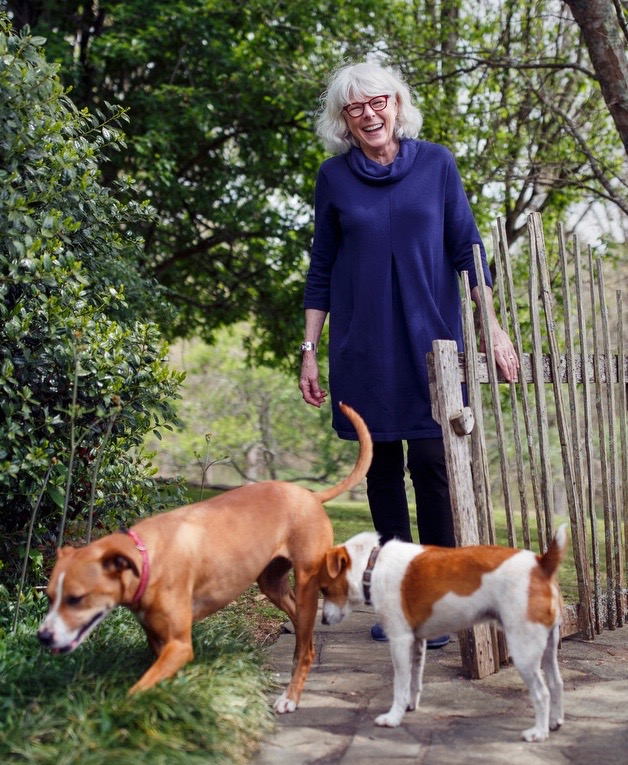
After the worship service, a deacon named Marie approached her and said, “Thanks for your encouragement, but I don’t know if I am interested in God depending on me that much. I don’t think I want to be that important.”
Marie felt hesitant to “walk humbly” with God because she was too afraid of where it might lead. But we know that if she – if we – take in Micah’s words, then we cannot hesitate when God takes us to the highest mountain or to places of brokenness, where justice is in short supply. In Judaism this is explained as tikkun olam: our collective holy call “to repair the world.”
So, we “love kindness” and we “walk humbly” and then finally, we arrive at justice itself.
I love the word justice – because it is an action word: it gets us to our feet, invites us to start moving, brings us to mindful stillness, empowers us to speak out in full voices, and emboldens us to pray without ceasing.
To “do justice” is to use our unique gifts to bring equity and voice to those most exploited and powerless. And how incredible, that God says we can’t even begin this hard and essential work unless we first recognize our shared humanity and divinity until we remove selfishness and manipulation until we meet each other with compassion and with eyes on the One who shows us the way.
Imagine how different the world could be if we could build up the strength and stamina to approach every cause, every conflict, every conversation with a commitment to do all that God requires of us. Imagine… Imagine what it could mean for your life – for our life together? How might this shift your approach to those you encounter each day, or to the justice issues closest to your heart?
As IFFP enters its 30th year, I feel fortunate to serve this robust interfaith community that is seeking to teach, celebrate, and embrace both traditions respectfully and with pride – side by side.
Many of us found IFFP because we were looking for a place of true belonging – where justice, kindness, and humility were alive and well. As we know well, to be in an interfaith marriage, or to grow up in an interfaith home, is not always met with acceptance and compassion. Some beloved families experience harsh words or closed doors. How unjust it feels to not be fully welcome into a house of worship, or by one’s own tradition or family because of who you love. How unjust it feels to be told you are not Jewish enough, or Christian enough, or even worse – you are nothing.
Together, and alongside other community partners, we are making every effort to do the challenging work of being beacons of bridge-building repair. Surely our buildings, our sanctuaries, and our communities are meant to be places of justice and service, where we don’t take ourselves too seriously – we take God seriously.
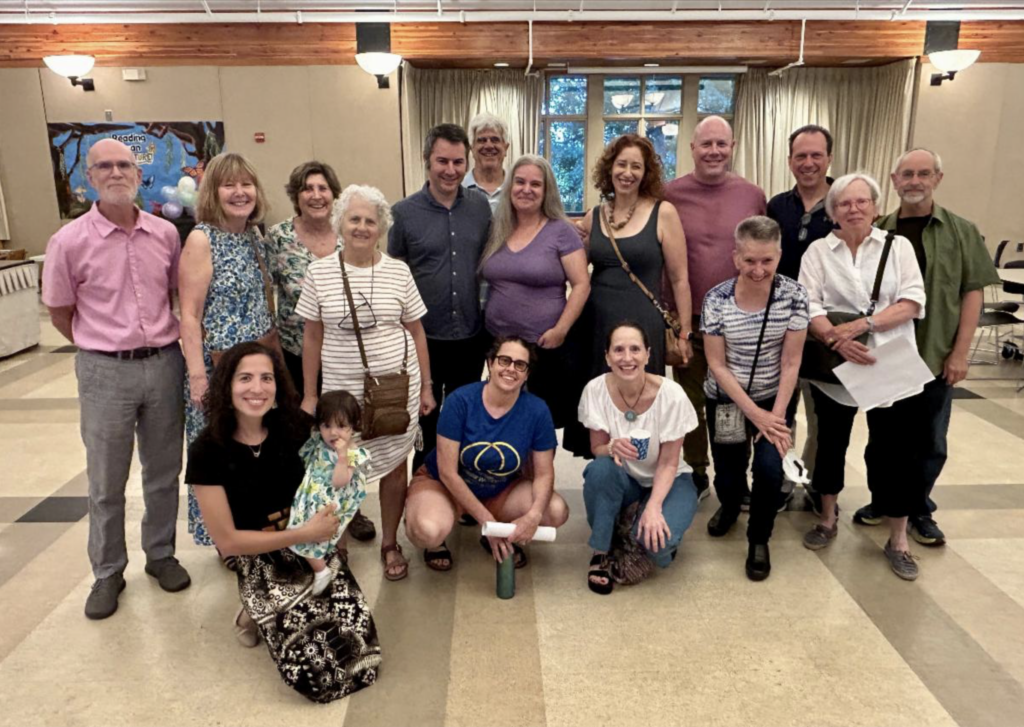
In this season of immense polarization and vulnerability, Micah’s words give us the muscles, the tools, the fire in our bellies, the tenderness in our hearts, and the partners we need, so that we can climb up the mountain toward God’s voice – and dig as many holes as we can for mustard seeds of love and light to grow and thrive. The beloved community here and now.
May we have the strength to embrace these simple, wondrous things each and every day. May we do justice, love kindness, and walk humbly with our God.
There is much to do. Let’s get to work.
